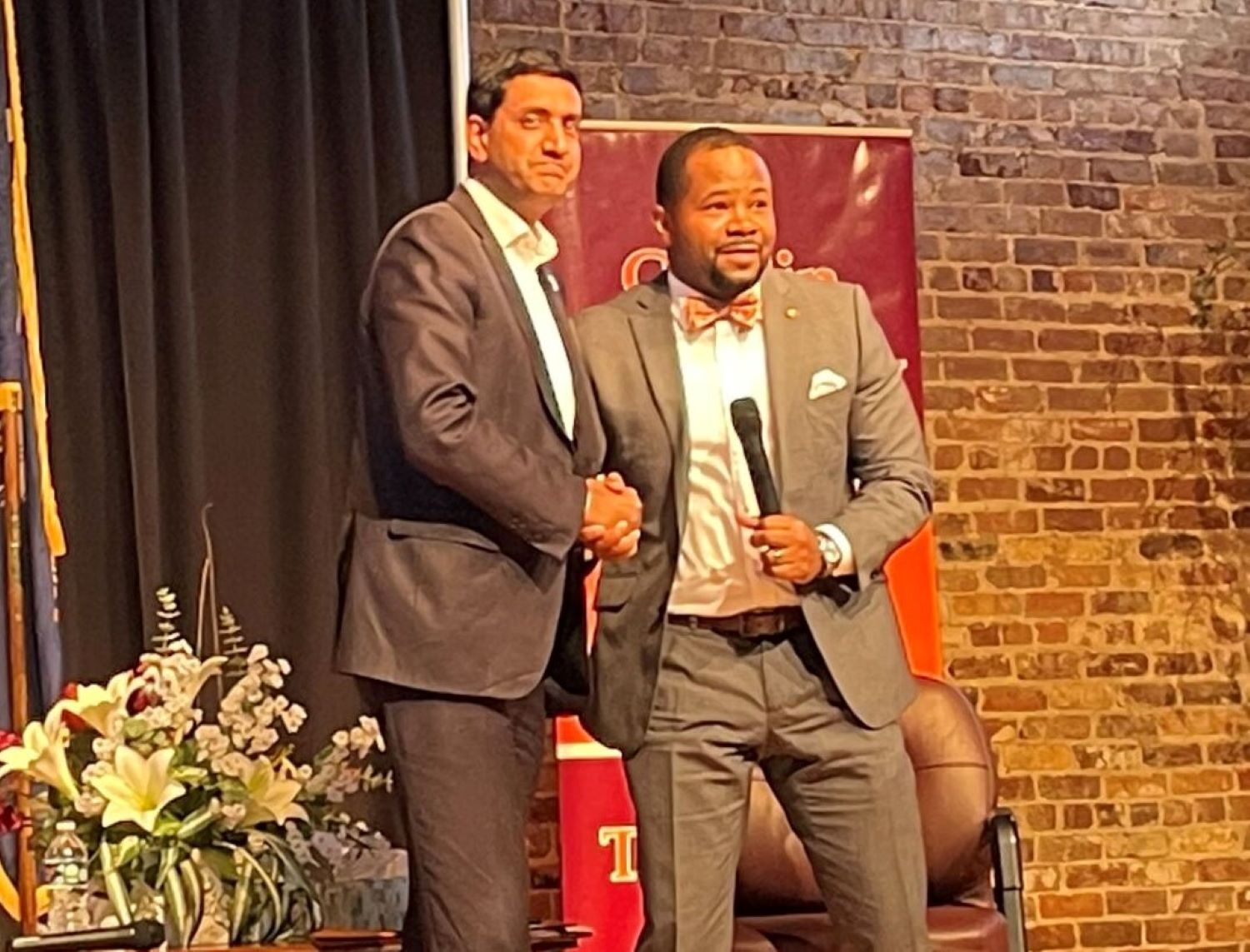Tech needs more people from HBCUs, Khanna says
By: JALIAH ROBINSON
Apr 14, 2022

Claflin University hosted a Fireside Chat with Ro Khanna, left, a U.S. congressman from California, and Dr. Dwaun J. Warmack, the university president. (Panther photo by Jaliah Robinson)
It is time to open the door for opportunities in technology, a congressman says.
On Tuesday, April 12, Claflin University hosted a Fireside Chat with Ro Khanna, a U.S. representative from California’s 17th Congressional District, and Dr. Dwaun J. Warmack, the university president. They discussed how to get more students from historically Black colleges and universities into the technology industry and how to fix the wage disparity within minority communities.
“HBCU students have the talent and the GPA, but the disconnect is in recruiting and partnership from the tech companies,” Khanna said.
Khanna said more companies need to recruit, promote, retain and partner with HBCUs. “People aren't getting the exposure to the private sector and the private sector isn't getting the exposure to the talent,” Khanna said.
In order for HBCUs and the tech companies to build more relationships, people need to “tell stories of success,” Khanna said.
He highlighted two seniors from Claflin, Harris Roach and Aaleeyah Housley, as examples of what could happen if more companies put their attention on HBCUs. Both scholars have secured a job in the tech industry after they graduate.
Young African American students have a greater interest in computer science than the average, but the country doesn’t take advantage of that, Khanna said. “Silicon Valley is so deeply unrepresentative of talent.”
Khanna said in order to get the tech industry to not only invest in minority students but also in the community, a structural change of power is required. “Until you change who’s at the table, the agenda won’t change.”
Khanna also mentioned protests over police brutality and basic human rights within the Black community, saying that “there should be equal outrage that all communities aren't participating in generational wealth. There needs to be a demand.”
The talent and the drive is here, therefore the community needs a stake in generational wealth, Khanna said. He advised students to use social media and other tools at their fingertips to organize, speak out and put pressure on their representatives.
Khanna’s advice to the students in attendance was to know their intelligence and worth, don’t be afraid to fail, and that it is their obligation to get engaged.
Khanna’s 2018 visit to Claflin was the catalyst for a partnership between Zoom and Claflin.
A delegation of elected officials -- including Khanna, 6th District Congressman Jim Clyburn, and a group of Silicon Valley venture capitalists -- traveled by bus to Claflin University’s Ministers' Hall to learn how HBCUs are preparing students to become the next generation of entrepreneurs and technology professionals. The trip was part of the “Comeback Cities Tour South,” which visited cities throughout the region and HBCU campuses in North Carolina, South Carolina and Georgia.
Khanna’s Claflin experience was the catalyst for a five-year partnership between Claflin and Zoom Video Communications Inc. The partnership represents $1.2 million in educational and financial investments.
“I saw Democratic Whip Jim Clyburn’s passion for this firsthand when he took me on a tour of his congressional district. Together we toured Claflin University," Khanna said then.
“I’m so proud to see Zoom announce a $1.2 million partnership over the next five years with Claflin. This is not just a one-time donation from Zoom; they will provide paid internships, scholarships and real-world experience for students at Claflin. We need structural change and Zoom's partnership is the model of a substantive partnership that others should follow.”